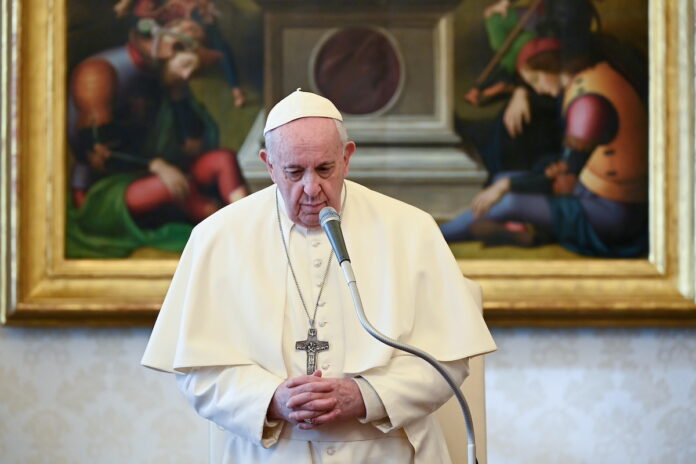Iraqis are preparing to host His Holiness, Pope Francis, in an official visit on March 5th. This visit, which will last four days, comes as the World goes through the unprecedented circumstances of the COVID-19 pandemic. Many hope that this visit will support the region’s stability and promote peace and understanding among Iraqi citizens of all faiths and ethnicities. The Iraqi government welcomes this visit, which is regarded as the first of its kind and aims to foster stability and spread the spirit of inclusion amongst Iraqis.
The visit comes amidst challenging political and economic times for Iraq. In addition to a second wave of the COVID-19 pandemic, which has placed the nation under lockdown, Iraq also faces a financial crisis caused by the drop in global oil prices, terrorist attacks by Da’ish in different areas of the country, upcoming parliamentary elections scheduled for October and other challenges.
At a time in which Iraqis seek to foster ties with their neighbors and the international community, this visit cannot come at a better time. The Pope’s tour of the county creates an opportunity, frames Iraq’s problems, and facilitates building a balanced relationship between Iraq and its neighbors. Iraq always opposes external interference and aims to have amicable relationships based on mutual interests, which preserve Iraqi sovereignty.
On February 8th, Vatican News announced the Pope’s visit to Iraq, which includes planned stops in Baghdad, Najaf, Ur, Erbil, and Qaraqosh. Packed into this tight schedule are two stops that seem particularly important: first, the visit to Najaf and the meeting with Grand Ayatollah Ali Al-Sistani, which will represent a historical event for the city, given its importance and symbolism. Grand Ayatollah Sistani has a special place amongst Iraqis regardless of their religious or political backgrounds. Grand Ayatollah Sistani played an essential role in Iraq after 2003. Through his moderate positions, his reassuring statements, his humane stances towards minorities in Iraq, in addition to his call to foster dialogue and coexistence between Iraq’s different religious components, Grand Ayatollah Sistani is respected by Iraqis.
The second significant stop in his itinerary is Qaraqosh which lies in the southeast of Nineveh governorate. The Pope will hold mass there, given what this city represents to Iraq’s indigenous Christian community. The city suffered hardship during the occupation of Da’ish and its inhabitants’ displacement in 2014. Pope Francis’s short stay in the city is a message with a distinct spiritual character, and it highlights a peaceful path of dialogue, fraternity, cooperation, and respecting the disenfranchised. The Pope has called for the refugees’ safe return to their homes. He continued to encourage them to persevere in their homeland in the face of challenges.
Despite the security and health risks associated with Covid-19, the Pope insists on conducting the visit as scheduled. The Iraqi government also issued reinsurances to the Vatican to undertake the required measures to ensure that the historical visit is a success. The visit will be a globally watched event that will join his Holiness with the people awaiting him with great anticipation despite COVID-19. The visit is also a sign of hope in these difficult times. The Pope’s vision for Iraq will be an initiative to support the continuation of life despite difficult circumstances.
It would be wrong to believe that the Pope’s visit to Iraq is an occasion of significance to Iraq’s Christians only. Instead, it will be a historical moment for all of Iraq. The carefully planned trip through Mesopotamia reflects this visit’s profound influence.
This visit’s nature or program has not mentioned any agreement or document to sign. However, will there be a document signing similar to what was signed in Abu Dhabi and Morocco in 2019?











